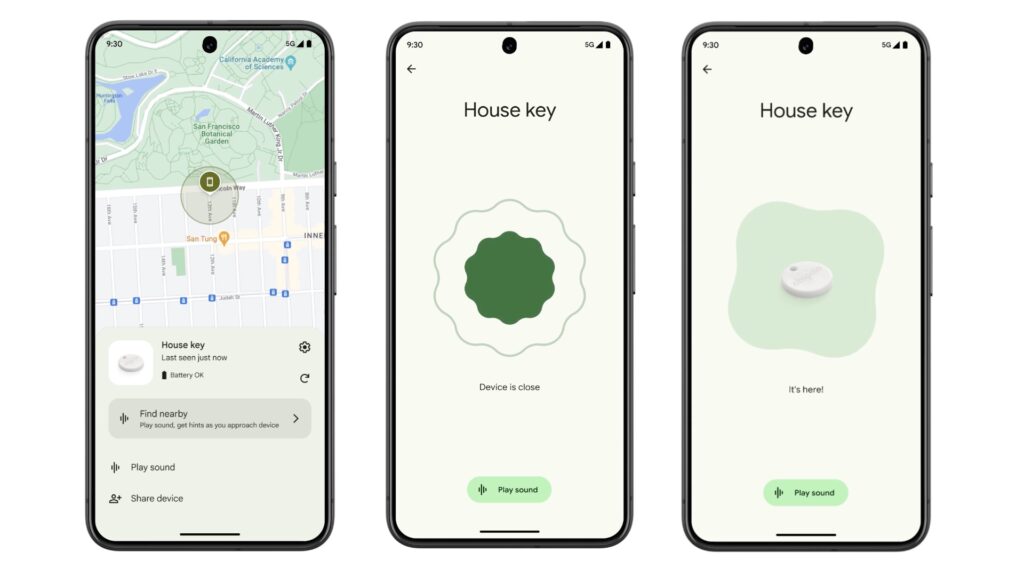Three years after Apple, Google is in turn deploying a decentralized network, powered by all Android smartphones on the planet. “Find My Device” can find a smartphone without Internet and without GPS, just like keys or a bicycle.
After the Tile network, the Apple network and the Samsung network, Google is officially launching its Find My Device network after several years of development.
Since April 8, 2024, the three billion Android devices worldwide can act as geolocation beacons. A lost Pixel smartphone, even when turned off, can be located by any other Android smartphone, which will send a signal to Google’s servers to inform it of the last location of the lost device. Given the immensity of the Android fleet, the Find My Device network undoubtedly becomes the largest on the planet.
Compatibility between Google and Apple to avoid bad behavior
In addition to better localization for smartphones, which no longer need to be connected to the Internet to be located (Pixel 8s are the only ones that can be found turned off, for the moment), the Find My Device network will allow Google to attack the Bluetooth tracker market. Chipolo, Pebblebee, Eufy, Jio and Motorola will launch competitors to the Apple AirTag which will rely on Google’s network. They will allow you to find keys or a wallet in a few seconds and anywhere in the world. Ultimately, we can imagine that Google will launch its own Pixel Tag.
Several existing devices, such as Sony or JBL headsets, will receive updates to integrate the Find My network.

What about abuses, when some use the AirTag and its competitors for malicious uses? If a Find My tracker follows you for too long, you will receive a notification. Note that iOS 17.5, the future update of the iPhone, will also be able to detect the presence of a Google tracker, without an application to install.
Can Tile and Samsung survive Google’s network?
Well installed with its AirTag and its Locate network, Apple should not be affected by Google’s network.
On the other hand, the equation is more complicated for Tile and Samsung. The first depends on its network of accessories (which is logically smaller than that of Android), the second is duplicated. Samsung smartphones represent a considerable share of the Android market, but also power the Google Find My network. In short, the question of a transition from SmartTags from the Samsung network to that of Google may arise, when the new network is deployed worldwide. All Android devices from Android 9 (2018) are compatible.
Subscribe to Numerama on Google News so you don’t miss any news!
